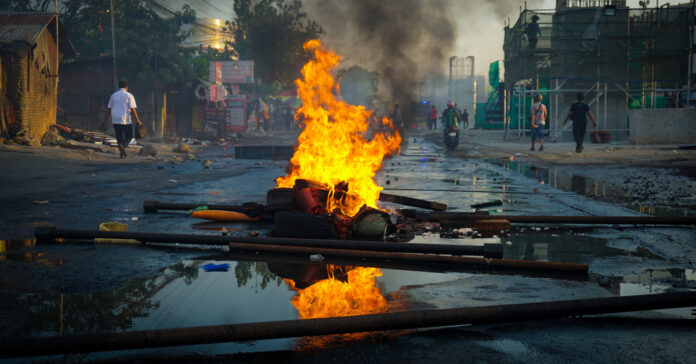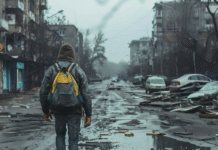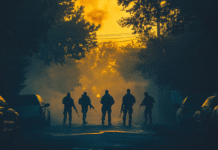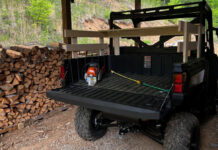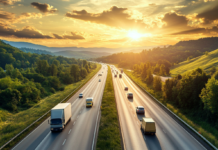This is part two of our how to handle an economic collapse series. Don’t miss yesterday’s part on how to handle shortages and outages caused by an economic collapse.
I wrote yesterday about how to handle shortages of food, gasoline and other goods. Today, we’ll look at how to handle slowdowns or a lack of services such as police, fire, EMS, and trash hauling and disposal, other potential signs of an economic collapse.
A deterioration of service locally, in a specific city or municipality, might be because of financial mismanagement, a lack of tax income, or other financial problems in that specific state or city. Under-funded pension systems that suck up municipal income, a loss of the tax base because individuals and business have left the area, or corruption and mismanagement could all contribute to this on a local level. If we see cops and firefighter refusing to go to work because they haven’t been paid in multiple jurisdictions across the country, then this is one sign of a bigger problem.
Likewise, if hospitals run out of some medicines, if public institutions like museums close their doors, if public transit loses drivers because of no funding, or if municipal services like road repairs and water and sewage repairs lag, then we are probably in the early stages of an economic collapse. When they move from being slow to shutting down altogether, then we are in full-fledged collapse.
Judicial Collapse
During an economic down cycle, crime increases because people lack money and some turn to crime. Others may feel it is better to get three hots and a cot in jail and get free healthcare than it is to slowly starve to death outside of jail. The increase of crime makes the law enforcement officer’s job busier and potentially more dangerous. As officers are suspended, go out of disability and medical leave, get the blue flu, or resign, there are fewer constraints on crime and it gets worse. This becomes a vicious cycle.
If the police stop coming to work, it’s usually for one of three reasons: They are not being paid enough because of inflation or a lack of funding, they decide to stay at home to protect their families from the violence, and/or they think the job is too dangerous or just not worth it. Many of these factors will not affect only the police. Sheriff deputies, jailers and detention officers, even members of the prosecutorial staff might stop coming to work. At some point, when the jails are understaffed, a do-gooder judge will order the release of criminals, and then crime will rise even further.
By the time this happens, you should have a plan in place and you should be well armed. You should have security devices installed such as locks, gates, possibly bars on the doors and windows, motion-sensor lights, a large dog, and a security system. The devices will not stop crime, but they may cause criminals to look for an easier target. They also alert you to the presence of a criminal so that you are not surprised and are in a better position to protect yourself and your family.
Living in a Lawless Society or WROL
During a total breakdown, you may find yourself living in a lawless society (or without the rule of law–WROL) in which police do not respond to calls, arrests are not made, and people can literally get away with murder. Depending on where you are on the descent into a total societal collapse, you could see an increase in armed robberies, carjackings, breaking and entering, home invasions, and kidnappings. In fact, kidnappings of children for ransom are common in many countries to extort money from the wealthy. As crime rises, you might go armed at all times and answer the door only when covered with someone armed with a shotgun or carbine.
You need to decide how living in a lawless society will change your response plan. For example, today it might not be legal to shoot a group of ten people gathered 25 yards from your house with Molotov cocktails until they throw one your direction. If you are living in a lawless society, you might decide to fire a few warning shots when the first three gather or to shoot the thrower as soon as they light the rag. Or, you may feel that the best defense is a good offence, and install dangerous booby traps that would get you jailed if used today. Your decision on how to best protect yourself in a world without the rule of law will be based on the situation then, not the morals we have today.
Unless you are very well hidden, one or two people will find it difficult to survive alone in a WROL situation. The best way to avoid being victimized will probably be to team up with others. This could mean having enough armed people living with you to provide some serious firepower and post a 24/7 guard, it might mean developing a mutual assistance agreement or founding an active and aggressive neighborhood watch, or both.
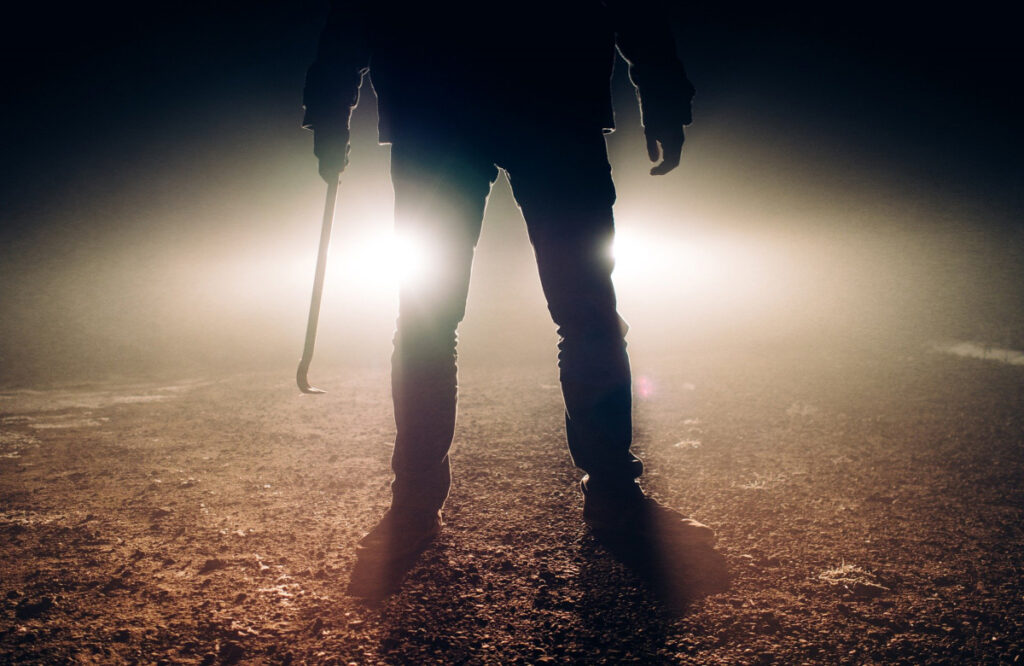
Lack of Fire and EMS Response
There is no doubt that firefighters, fire and rescue squads, EMS personnel, paramedics, and other first responder save lives every day. For them to work requires a society with a rule of law where they can safely respond, travel the roads and highways, and know they will not be shot at by criminals. If the police pull back and stop responding, we should expect fewer services from these other first responders, who will face many of the same financial pressures as police.
This means you are going to have to fend for yourself and be your own first responder. Your best bet is to prevent fires. Minimize the use of candles or use them in jars and other devices that prevent them from falling over. Keep a fire extinguisher handy. If you cook with an open flame, do it outside.
One of my neighbors has a pond that is estimated to hold 800,000 gallons. It is designated as a place where the local fire department can suck up water to help put out a fire. But does he have his own pump and fire hose to fight a fire at his own place? I don’t know. It might be a good investment to acquire a two-inch water pump from Harbor Freight for $220.
You may also have to treat your own injuries or transport yourself or others to the hospital, assuming one is open and staffed. If not, then you will have to rely on any nurses or doctors in the immediate neighborhood.
While there are plenty of first aid books, they won’t be much help if someone has a stroke or massive heart attack in a SHTF situation. In the past 30 years, we have only needed an ambulance once, and we would have lived without it. I will just have to hope that in an economic meltdown we don’t have any serious medical emergencies.
Sanitation Issues
The lack of trash pickup will be a bigger problem in cities and developed areas than it will be in the country. Out here, it is easier to compost than it is when living in an apartment. It’s easier to burn trash, either in a wood burner during the winter or in a burn barrel outside. In the city, it tends to pile up as dumpster overflow because residents just keep tossing bags onto the stack, regardless of how large it gets. This attracts rats, flies, and can become a breeding ground for disease.
Trash is not the only sanitation issue; human waste may back up if sewage systems shut down or electrical service grinds to a halt. Without pumps moving the sludge uphill and to sewage treatment plants, sewage could eventually back up into houses. The long and short of it is that if things fall apart to the extent that water and sewage cannot be kept running, then we’re all going to revert to pissing and pooping outside, preferably in a deep latrine, a properly dug outhouse, or at least well away from your water source.
However you decide to handle your waste issues, cleanliness is going to be very important in staying healthy. You need to make sure you have sufficient water for washing hands, washing plates and utensils, cleaning pots and pans, and giving yourself the occasional bath or shower. That means you should consider things like rain catchment systems, rain barrels, tanks, and cisterns. Portable camp showers provide a way to get a warm shower on sunny days.
Fresh water is important for livestock as well. They drink an impressive amount, which is why a bucket is handy of the water stops running. On the plus side, chickens, pigs, or even goats can eat much of your food and garden waste, meaning less to dispose of.
Economic Hardships are Just the Beginning
When faced with an economic collapse, people tend to focus on the financial hardships, asking will we lose our jobs, will we be able to pay or our rent and mortgage, can we afford to buy sufficient food, etc. What people often don’t think about is our reliance on other workers, like police, fire and EMS. Municipalities will suffer as people lose their jobs and business close because tax revenues will decline. Borrowing will get tougher as interest rates rise and fewer investors have funds to invest in dying cities. The worry about affording food become secondary to finding food for sale at any price.
The importance of law and order cannot be underestimated because so much of our advanced society depends on people being able to move freely about. During last year’s riots, we saw trucks being plundered. If it becomes too dangerous to make deliveries to cities, the cities will quickly run out of food and other goods. When tankers of gasoline are targeted for hijacking, then drivers will refuse to make deliveries, and gas stations will run out of fuel.
If it becomes too dangerous to drive to work because of roadblocks and bandits, people who work in hospitals, electrical generation facilities, water treatment plants, and many other critical jobs will stay home. That means utilities will cease to work and our society will be in full failure mode. This is how one problem can cascade into multiple problems and why the rule of law is critical to our society.
Hopefully, you city preppers will have bugged out to friends or family in the country before it gets too ugly, because while the WROL will be ugly everywhere, the higher the population density, the worse it will be.

